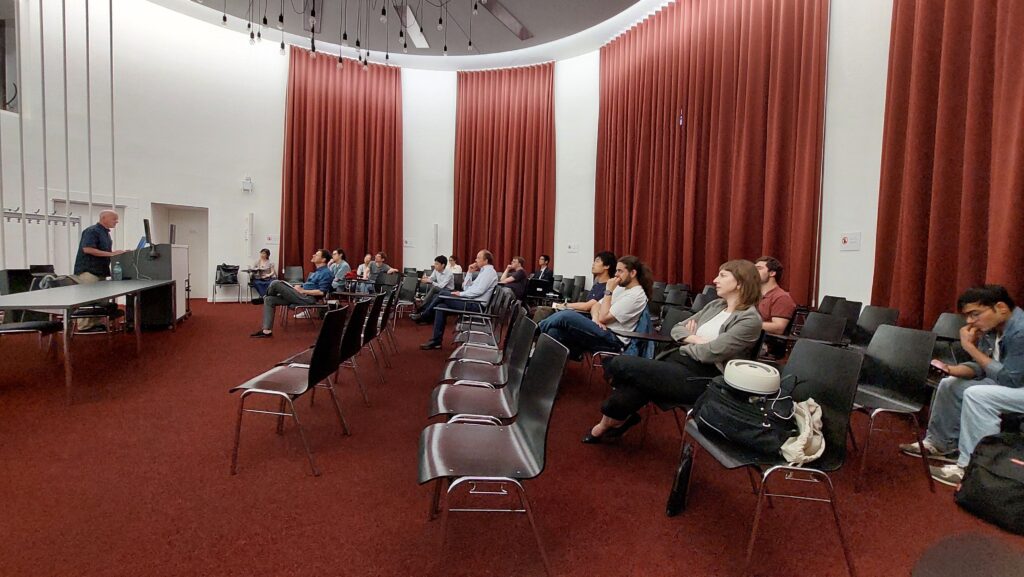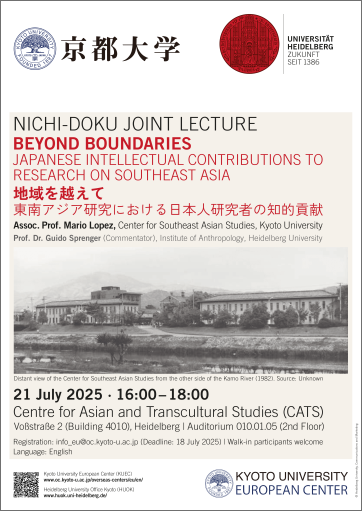The Lecture
Professor Lopez’s research aims to highlight Japanese researchers’ contributions to Area Studies. By analyzing collaborations, he seeks to understand how knowledge is produced and how Area Studies has evolved into a multidisciplinary field central to scientific research in Japan.
In the first part of his lecture, Professor Lopez examined the formation and contemporary challenges of Area Studies in Japan. One significant issue is that Japanese research often runs parallel to its European and American counterparts, despite its long history, eclectic nature—spanning multiple fields and disciplines—and eagerness to capture and solve real-world complexities beyond mere theoretical discussions.
Professor Lopez defines Area Studies as an arena rather than an entrenched research field. He emphasizes the potential for understanding that researchers working in the same region are, as Professor Tanaka Koji (former director of CSEAS) puts it, “eating from the same bowl.” This perspective bridges and fosters dialogue among domains such as the Humanities, Social Sciences, Natural Sciences, and Medicine.
 |
 |
| Welcome address by Chiyoko Kanno (Kyoto University European Center) and Sabine Schenk (Heidelberg University Offices Kyoto) | Q&A Session |
In the second part of his lecture, Professor Lopez presented the results of his study on the formation of research networks and multidisciplinary collaborations. He analyzed thousands of research funding database entries to identify collaborative Area Studies projects and visualize the connections between participants. Professor Lopez demonstrated the density and evolution of researchers’ networks, highlighting the importance of highly engaged “hub researchers” who continually reach out to others in different domains. He presented individual research projects to illustrate their multidisciplinary nature, including collaborations among ethnology, medicine, and engineering researchers within a single project to tackle on-ground problems like safe drinking water.
In a further step, Professor Lopez examined individual researchers. By analyzing their backgrounds, he noted that some switched from “hard science” (engineering) to “soft science” to contribute to Area Studies. Through interviews, he illustrated how researchers understand and contribute to this multidisciplinary field, further demonstrating the diversity vital for its success.
 |
||
| Glance at the audience |
Commentary & Discussion
In his commentary, Professor Sprenger expressed surprise at the vitality of Area Studies in Japan. As an ethnologist, he noted that he rarely encountered Japanese contributions in his field but was eager to explore them more closely. He praised the on-site problem-solving approach of Japanese scientists, contrasting it with Germany’s more theoretical and linguistic focus. In a subsequent dialogue, both researchers exchanged views on the nature and future of Area Studies.
Further Information
- The Nichi-Doku Joint Lecture Series
- Program of the 24th Nichi-Doku Joint Lecture “Beyond Boundaries: Japanese Intellectual Contributions to Research on Southeast Asia”



